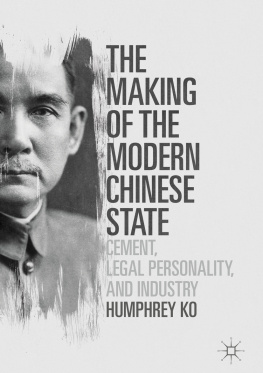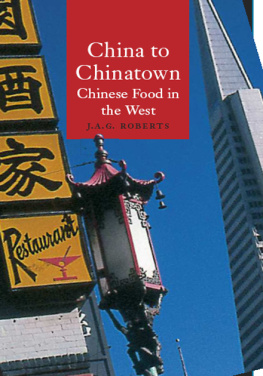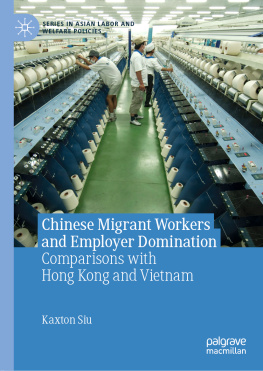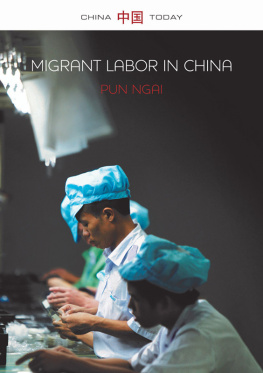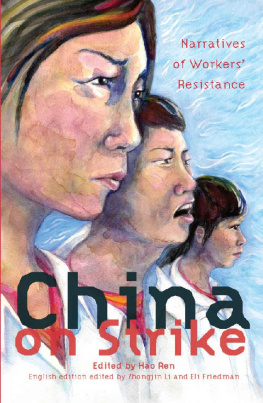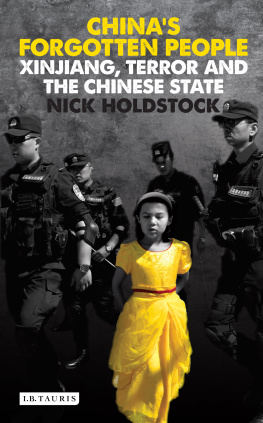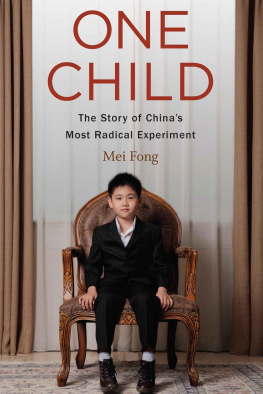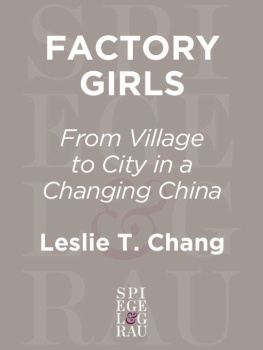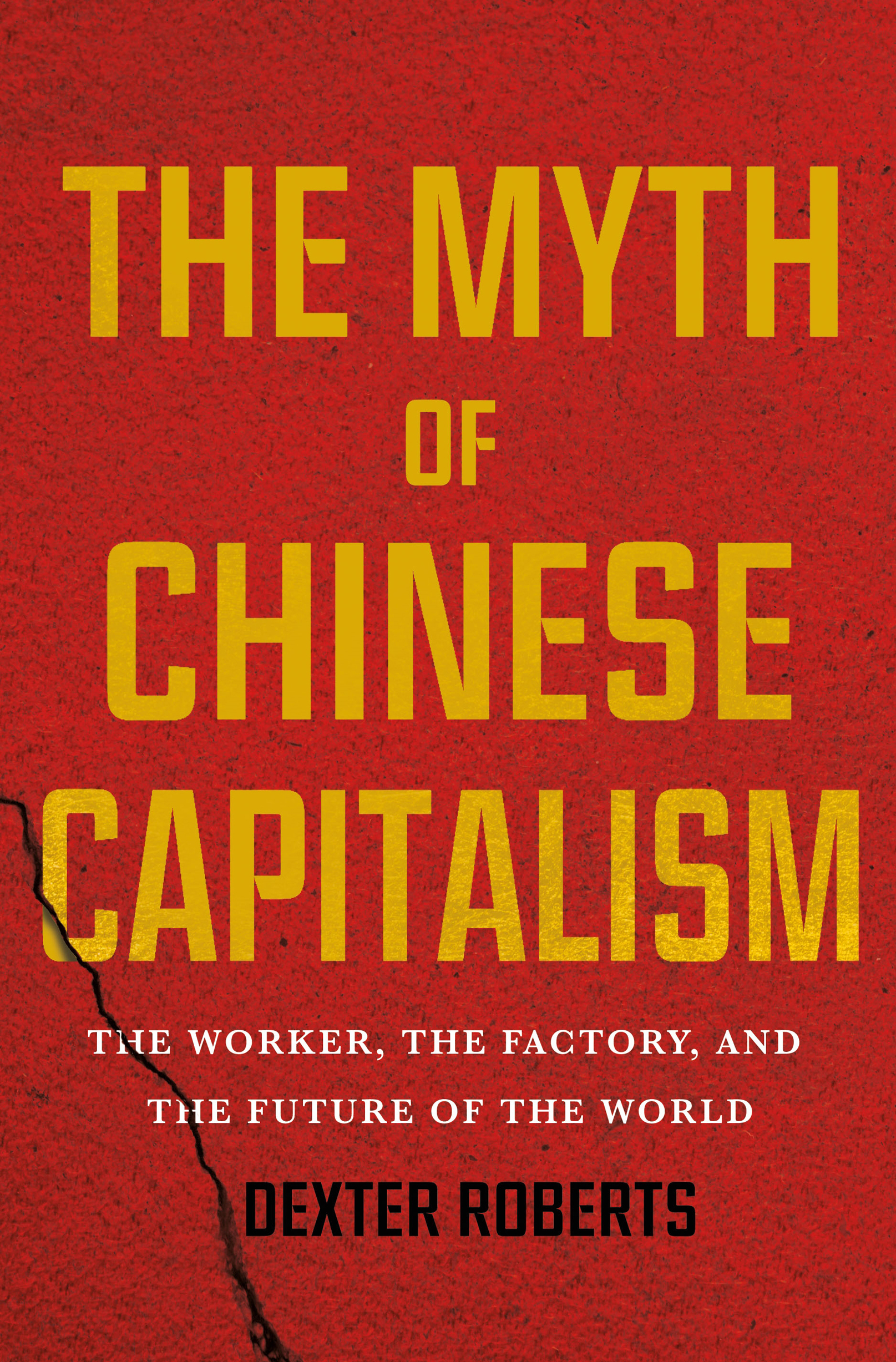The author and publisher have provided this e-book to you for your personal use only. You may not make this e-book publicly available in any way. Copyright infringement is against the law. If you believe the copy of this e-book you are reading infringes on the authors copyright, please notify the publisher at: us.macmillanusa.com/piracy.
Barshefsky, Charlene: Former U.S. trade representative. Barshefsky helped negotiate Chinas entry into the World Trade Organization in 2001.
Deng Xiaoping (19041997): Long a key member of Mao Zedongs inner circle, Deng was later purged twice by Mao before launching reform and opening of the Chinese economy in late 1978, following Maos death in 1976. Often called Chinas paramount leader.
Dong Xiangzhu: Elderly farmer woman in empty nest village of Shangxule, Hebei.
Fang Hongbo: Chairman of Midea, Chinas largest white-goods appliance maker. Fangs company acquired German robot maker KUKA in 2016.
Fei Xiaotong (19102005): Prominent anthropologist and sociologist. Fei was an early advocate for rural land reform and establishing grassroots democracy in the Chinese countryside. After being purged during the Anti-Rightist Movement of 1957, Fei spent twenty years out of academia, at one point cleaning toilets for a living.
Feng Xingya: President of Guangzhou Automobile Group Co. Fengs company is branching into new-energy vehicles and is a large recipient of government Made in China 2025 funds.
Gou, Terry: Founder of Foxconn, Apples largest supplier.
Gu, Andy: Midea deputy CEO who oversaw the acquisition of KUKA. Gu originally studied demography at Cornell University.
Han Dongfang: Prominent worker leader during the Tiananmen protests of 1989. Thrown in jail in China for a time after the crackdown, Han now runs a labor advocacy group from Hong Kong.
Hong Xiuquan (18141864): Leader of the millenarian Taiping Rebellion that seized control of much of southern China from 1850 to 1864. Hong was a utopian who believed in radical land reform and claimed to be the younger brother of Jesus Christ.
Hu Jintao (1942): Chinas top leader from 2002 to 2012. Hu launched the New Socialist Countryside policy in 2005 in an effort to improve rural health care and education.
Jiang Zemin (1926): Chinas top leader from 1989 to 2002. Jiang rose through the party ranks mainly while based in Shanghai. In 2000, Jiang launched the sweeping Develop the West plan to address the growing regional gap in China.
Lai Ruoyu (19101958): Head of the government-run All-China Federation of Trade Unions during huge Shanghai labor protests in 1957. Lai, a former soldier, broke with the official line that blamed workers for their low-class consciousness and instead criticized the unions for not aiding workers. He was purged by the party and died of liver cancer in 1958.
Lee, Dee: Founder of a small labor consultancy in Guangzhou. Lees company consults for global brands and retailers operating in China.
Lenin, Vladimir I. (18701924): Russian revolutionary leader and Bolshevik theorist.
Li Keqiang: Chinas premier from 2012 to the present. Li has pushed for more rapid urbanization in China. The leader, who comes from the interior province of Anhui, has also championed a policy of encouraging mass entrepreneurship and innovation, which aims to move China to a more sustainable model of growth.
Lin Zexu (17851850): Qing dynasty scholar and official known from youth as unusually brilliant. Lin advocated for the revitalization of traditional Chinese thought. Posted in Guangdong as the imperial commissioner in 1829, he is heralded in China today for fighting to stop the opium trade.
Liu He: Gray-haired senior aide who is liked by many Chinese intellectuals. He is a proponent of the automation of Chinese factories. Liu has served as Xi Jinpings top trade negotiator during the trade war with the United States.
Lou Daren: A Taiwanese businessman based in Dongguan, Guangdong, for more than twenty years; formerly served as the chairman of the Taiwan Businessmen Association. Lou once ran a bicycle-helmet factory in Superior, Montana.
Ma, Jack: Founder of Alibaba, Chinas largest e-commerce company.
Mao Zedong (18931976): Communist revolutionary and founder of the Peoples Republic of China in 1949.
Meng Han: A fifty-two-year-old former hospital guard turned labor activist who worked for Zeng Feiyang in Panyu, Guangdong. Meng was sentenced to twenty-one months in jail in late 2016 for disturbing public order.
Miao Wei: Former president of Dongfeng Motor Company. Miao is now a key official in Chinas technology strategy.
Reuter, Till: KUKAs former CEO, who previously worked as an investment banker for many years. Reuter is pushed out of management by senior Chinese executives, after the German robot maker is acquired by Midea.
Stalin, Joseph (18781953): Leader of the Soviet Union from the mid-1920s to 1953.
Wang Kan: Professor of industrial relations in Beijing.
Wang Mang (45 BCAD 23): The only emperor of Chinas Xin dynasty. Wang introduced radical land reform during his reign. He was killed by rebels who rose up to end his rule.
Wang Yang: While serving as Guangdong provincial party secretary from 2007 to 2012, Wang advocated a policy of adding robots and technology to factories, called Emptying the cage and changing the bird. Now a senior official in Beijing.
Wen Jiabao: Chinas premier from 2002 to 2012. While his family is known to be spectacularly corrupt, Wen launched measures to try to alleviate rural poverty, including by ending the agricultural tax in 2006.
Woo, Louis: Former Apple executive; now serves as special assistant to Foxconns Terry Gou.
Wu Guijun: Former migrant worker; he became a labor activist in Shenzhen after being jailed for a year for participating in a strike in a furniture factory.
Xi Jinping: Took over as top leader of China in 2012 and quickly moved to amass sweeping power and reassert the role of the Communist Party across politics, the economy, and society.
Zeng Feiyang: Early labor activist from southern China.
Zhang Zhiru: Prominent labor activist in Shenzhen who has had to move his office and home repeatedly due to police harassment.
Zhu Rongji: Chinese premier from 1998 to 2002. Zhu pushed reforms through the Chinese economy, including overseeing massive state enterprise reform and Chinas entry into the World Trade Organization in 2001.
THE MOS FROM BINGHUACUN
Mo Bochun: A local party official. He hopes to see Binghuacun become a tourism destination, rather than end up an empty nest village.
Mo Meiquan: A cousin of Rubos. Once a shy factory worker in Dongguan, she eventually returns to Guizhou to start a family.
Mo Rubo: A charismatic kid who dropped out of middle school. He worked in a succession of factories around China before finally starting his own business selling sports clothing. Rubo opted to stay in Dongguan, not far from one of the first factories he worked in.


